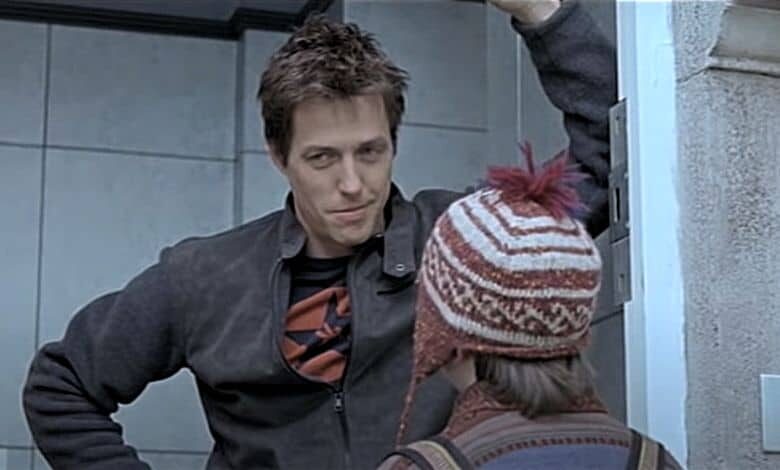
Will Freeman is the epitome of so-called white male privilege.
Hugh Grant’s character in 2002’s “About a Boy” has enough of Daddy’s money to last a lifetime, thank you. He doesn’t need a relationship, a family or your pity. He certain doesn’t want to change a diaper anytime soon. And, in the film’s signature plot development, he pretends to be a single dad so he can shag single moms.
And yes, he’s the hero of this story, someone we’re meant to cheer on without reservation.
Complicated, no? Actually, Grant makes it easy, showing us how empty Will’s life is beneath that snarky exterior.
“I really am this shallow,” he brags to a friend, but you sense it’s all a pose. It’s why he lights up when an awkward pre-teen named Marcus (Nicholas Hoult) elbows his way into Will’s life.
“About a Boy” solidified Grant’s status as one of the most endearing stars of his era, fully bouncing back from a high-profile sex scandal. It also embraced and rearranged the rom-com template in ways that proved irresistible.
Yes, Will is a cad, but Grant never lets his inner sadness stay hidden for long. Toni Collette co-stars as Marcus’ mum, a deeply depressed woman barely hanging on to her own existence, leaving little time to tend to her son’s needs.
Enter Will, who becomes an unlikely father figure to the boy and, in the process, finds his own humanity.
Oscar voters shrewdly gave “About a Boy” a Best Adapted Screenplay nomination. Young Hoult went on to become an in-demand actor, co-starring in multiple “X-Men” features as well as more serious fare like “Tolkien.”
RELATED: Woke Media Hits Embarrassing New Low
Looking back, the film is blissfully free of the kind of woke nods modern storytellers insist upon. There’s no obligatory “girl power” scene with the single mothers. Will doesn’t become an “ally” to any special interest group. In fact, the film’s completely happy ending (one of the few false notes in the production) celebrates Will’s transformation.
Imagine a current screenwriter taking a whack at Nick Hornby’s source material. The results would be far different, with the hard edges sanded down and the feminist elements front and center. The worst Will suffers from his, “I’m a single Dad” lie is a stink eye from the beautiful mom he hoped to date.
“About a Boy” is a near perfect film, a nuanced story that’s both funny and deeply heartfelt. Grant actively participated in the casting of young Marcus, and the results speak for themselves.
The film’s core characters may seem like archetypes, but each is allowed a chance to prove otherwise.
Collette’s Fiona looks like a standard issue sad sack. Yet she quickly realizes how valuable Will could be to her son’s development. She even sets aside her staunch vegetarian beliefs late in the film on Marcus’ behalf.
Will’s decision to join Marcus in a potentially disastrous school program offers one of many highlights, but the screenplay won’t let his heroism end on a grace note. He’s too smitten with the spotlight, and Marcus’ school chums turn on him.
It’s a minor note, but an important one.
The woke revolution makes creating films like “About a Boy” much harder, if not impossible. We’re only allowed to make certain anti-heroes with certain villainous traits. For some reason hit men get a pass, but misogynists aren’t so fortunate.
Even racists who learn the errors of their ways are frowned upon in woke circles.
We should be grateful “About a Boy” emerged in 2002, not 2021. The results would be far less enthralling, and the story of Will reclaiming his humanity wouldn’t be nearly as sweet.
